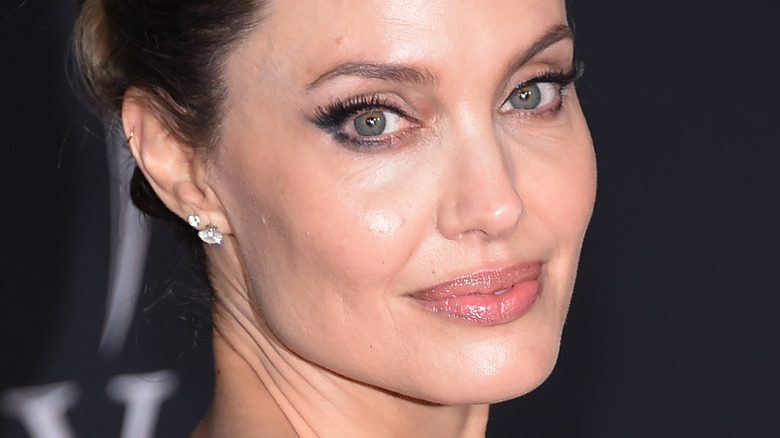How Angelina Jolie May Have A Huge Impact On Women's Health
These days, Angelina Jolie's official profession seems to be better described as General Good-Deed-Doer than award-winning actor. She's famously a philanthropist, of course, particularly in countries like Cambodia, where her oldest child Maddox was born. But her good-deed-doing is not limited to assisting people in impoverished countries or adopting children. She's also been massively influential to the health of women and others right at home in the United States.
It all started a few years ago when Jolie got a voluntary, preemptive double mastectomy, removing both of her breasts, because a genetic test found that she was at high risk for developing breast cancer, according to an op-ed she wrote for The New York Times. The influential actor's surgery made major headlines at the time, and from the looks of things, it's had a positive influence both then and still today.
The gene Jolie tested positive for is called the BRCA gene — or at least it was. Now, it's often referred to as the "Angelina Jolie gene," or just "Jolie gene."
The Angelina Jolie gene can help prevent breast cancer
According to several academic studies and news reports, Angelina Jolie's decision to get tested for the BRCA gene, which indicates a higher risk for developing breast cancer, has had a major positive effect by inspiring others to follow her lead and get tested for the gene. An article in the Harvard Medical School Journal from 2016 reported that there was a huge spike in people getting tested for the Jolie gene after the actor went public with the results of her test. This is a good thing primarily because it means more people will be able to detect breast cancer earlier, which leads to better survival rates. But it gets even better than that.
In December, Daily Mail reported that a new scientific breakthrough could help doctors predict when patients with the Jolie gene are most at risk for developing cancer, helping them get treatment earlier and sometimes prevent surgery altogether. We don't think they give away Oscars for popularizing a life-saving genetic test — but maybe they should start.


